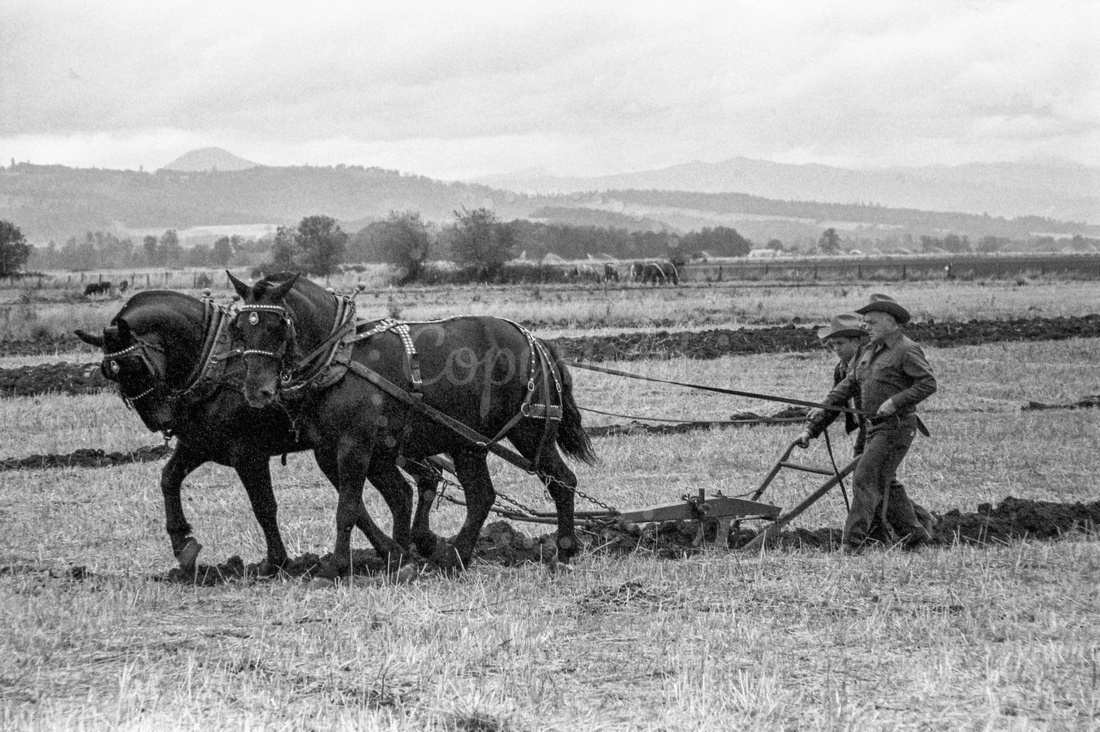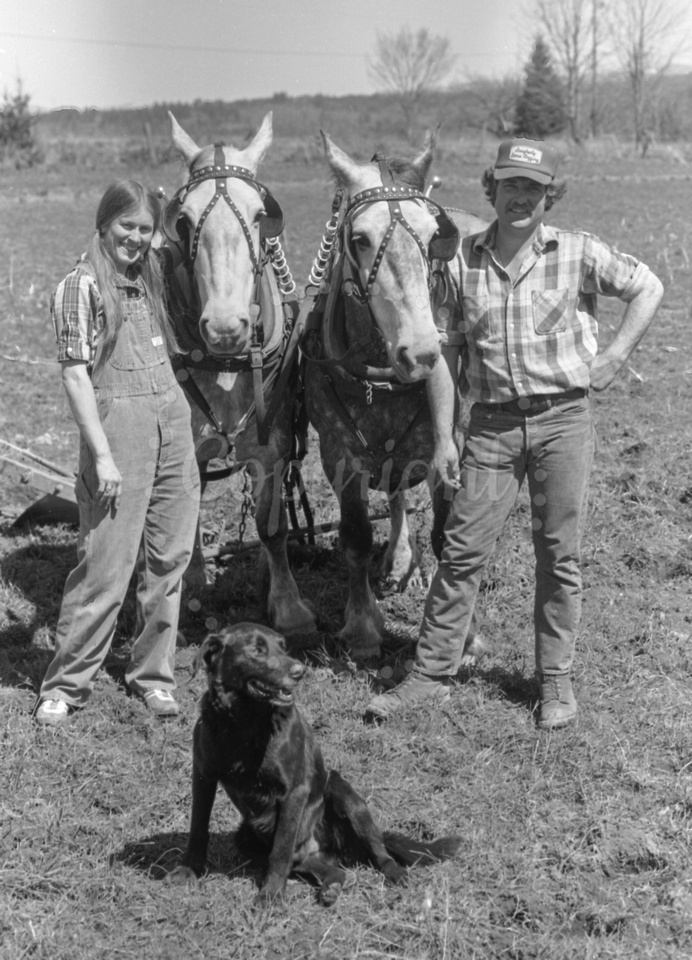Horse Plowing Contests


(1977) An assortment of horse-drawn equipment could be seen from the highway plowing the fields on Charles Kadell's farm in McMinnville. Motorists zipping by on Route 99 slowed down to look, and some of them stopped to see what was going on. It was a horse-plowing contest, an annual spring event sponsored by the Oregon Draft Horse Breeders Association. At this year's meet, some 30 plowmen and 80 horses competed with walking plows, riding plows, single-horse hitches, and teams of three, four, and six horses. Teams of Shetland ponies and mini-mules competed in their own categories, alongside giant Belgians, Percherons, and Clydesdales.
As the afternoon wore on and each contestant finished his plot, three judges inspected the furrows. The plowmen were judged on the straightness of their rows, the best "in" and "out" at the ends of the plot, the depth of the cut, and the general appearance of their teams and equipment. Scores were tallied and the winners received ribbons and sacks of grain. The next day the field would be disked and planted in oats.
There are no formal schools that teach the art of plowing with horses, and the old "professors" who really know their subjects are scarce said Monty Rumgay, president of Western Drafters. But the interest is there for a new generation, and people flock to the contests to watch and learn. "it's an adult hobby. We just get together for fun." Not like during the 1930s when he got his start. "During the Depression you had to be the best or you didn't get the work. But these matches aren't exactly like real farming. You're given a small plot to work and plenty of time to do it. Everyone rests a lot to visit and chat with their neighbors. They're just scratching the surface when it comes to the art of plowing."
Finding the right equipment is one of the hardest requirements for hose plowing, said Everet Metzentine, who still uses a 14-inch Oliver 40 walking plow that his father bought 75 years ago. Old barns and attics are likely spot to dig for plows, double trees, collars, and other gear, he advised. "If the metal isn't rusted, the wood and leather can be replaced and the equipment made as good as new. Some tools are handed down from one generation to another or passed on from old-timers to newcomers. There are also some small foundries that are starting to cast horse equipment and I think we'll see more foundries following. These plowing contests have helped in putting interest back in draft horses."

